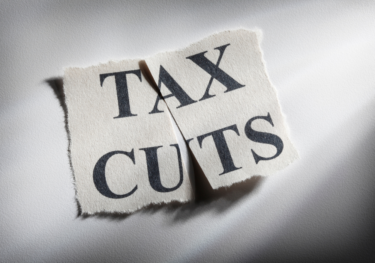In the media | 15 Mar 2024
FT rebuttal: Searching in vain for the Laffer curve boost

In a recent column, Chris Giles made a number of comments related to work undertaken by Oxford Economics on behalf of the Association of International Retail (AIR). The report can be found on our website. For context, the scope of work and central conclusions from this analysis are summarised below:
- Oxford Economics were commissioned by the Association of International Retail (AIR) to produce an independent assessment of the implications of reintroducing TFS. This included two analytical workstreams:
- estimating the direct fiscal impact of reintroducing TFS accounting for how the policy would affect visitor behaviour; and
- quantifying the economic footprint supported by the additional foreign visitor spending in the UK as measured through its contribution to GDP, employment and tax revenue.
- The results from each of these workstreams were reported separately.
- Our analysis projected that if reintroduced in 2025/26, TFS would have a net direct fiscal cost to the Exchequer of £586 million. This figure accounts for the forecast level of gross refunds, the share of this spending that was additional i.e., spending on retail that only occurred due to the VAT-free incentive, and the value of tax that would be collected directly from the spending of additional visitors i.e., who would not have come to the UK were it not for the incentive. For reference, the OBR’s revised equivalent estimate, as described in the most recent Budget, was a cost of £539 million i.e., almost identical.
- As part of our research, we also quantified the economic footprint generated by the additional spending that would be induced by the reintroduction of TFS. This concluded that inclusive of indirect and induced effects, this additional spending would contribute £4.1 billion to the UK GDP and raise £1.1 billion in tax revenue.
Chris’s critique of our analysis centred around two points:
- “That tax change does not appear to have deterred tourism from non-EU countries. Numbers of visitors to the UK have recovered after the pandemic in a similar way since 2021 to other European countries that did not scrap VAT-free shopping. There has also been no relative decline in visitors from non-EU countries.”
- “The most problematic assumption in the Oxford Economics report, however, was that anyone working in retail would be unable to find any work at all without the shopping subsidy.”
On point 1.), we do not consider that any evidence presented by the OBR suggests that the policy has had no impact on tourist behaviour. Since the policy change primarily incentivizes a selective group of tourists, any analysis of highly aggregated data, e.g., total tourism inflows, is not a useful device to identify any effect. Moreover, we think it is noteworthy that the OBR’s analysis, which the article cites, does highlight that, since 2019, visitors to Spain, Italy and France (three major shopping competitors to the UK in Europe) from the United States have rebounded significantly faster compared to the UK. Moreover, the OBR’s analysis does assume that the policy does have an impact on visitor behaviour (both spending decisions and locational choice).
On point 2.), we consider that the article wholly misrepresents the presentation of our analytical work through selective quoting. Specifically, the executive summary of our report concludes as follows:
“Our research indicates that the direct fiscal cost of introducing TFS in the UK would be over 70% lower than implied by the current HMT estimate. This difference arises because of both an anticipated overestimate of the total value of refunds that would be claimed and the failure to capture the policy’s impact on visitor behaviour.
Our modelling indicates that the economic footprint supported by the additional foreign visitor spending would offer a considerable boost to the UK tourism and wider economy, sustaining over 78,000 jobs and £4.1 billion in GDP. Whilst it would be reasonable to contest that this total contribution will not be fully additional, since it will incorporate some level of displacement, the fact that it is being supported by an increase in export revenue implies that the net boost to UK GDP will be significantly higher than a policy that incentivizes UK consumer spending.”
Our reporting, therefore, openly acknowledges that some of this tax contribution would not be net additional to the UK Exchequer. We do not, therefore, assume that “anyone working in retail would be unable to find any work at all without the shopping subsidy”.
Tags:
You may be interested in

US wealth effects are packing a larger punch than ever
Wealth effects proved to be a quite reliable tailwind to consumer spending this cycle.
Find Out More
Don’t write the Eurozone consumer off just yet
Eurozone growth in 2025 will rely on consumers. There were positive signs in H2 last year, with consumers starting to deploy their real income gains and the impact of lower rates feeding through. However, we don't think solid H2 outturns signal a sustained increase in momentum. Instead, we expect spending growth to stabilise around the current pace, totalling 1.5% in 2025.
Find Out More
US tariffs widen high- and low-income consumer divide
The more aggressive ramp up in tariffs caused us to lower, but not slash, our forecast for real consumer spending this year. Spending on goods will be hit harder than services, and tariffs will widen the gulf between high- and low-income consumers.
Find Out More
3 Key Takeaways from Trump Tax Cuts on US Consumer Spending
At Oxford Economics, we have been closely monitoring the potential impact of President Trump's tax cuts on the US economy. Our latest forecasts shed light on how these changes could affect consumer spending, particularly among high-income households.
Find Out More